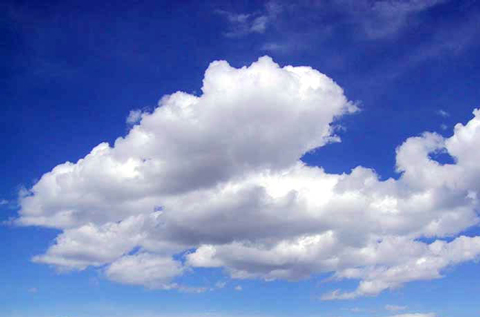 The partnership joins TWAS and the WMO, a United Nations specialized agency, in a venture to build science capacity in least-developed and developing nations that are more vulnerable to weather-related risks and the effects of climate variability and change.
The partnership joins TWAS and the WMO, a United Nations specialized agency, in a venture to build science capacity in least-developed and developing nations that are more vulnerable to weather-related risks and the effects of climate variability and change.
"The ever-evolving need for expertise in weather-, climate- and water-related sciences require more resources and broader partnerships to nurture young scientists. The agreement between WMO and TWAS will help build capacity in the human resources we need to face current and future global challenges," said WMO Secretary-General Michel Jarraud.
"Across the developing world, there is a critical need for expertise in a wide range of climate-related subjects," said Romain Murenzi, executive director of TWAS. "Through this agreement, we are pleased to strengthen our collaboration with WMO and start the process of providing high-quality training opportunities to give developing countries the chance to build their own indigenous scientific capacity."
For more than half a century WMO has, through its fellowships programme, cooperated with partners in building and sustaining a critical mass of experts in national meteorological and hydrological services in developing countries.
A major portion of WMO's mission is to build scientific networks and to support training and exchanges in fields ranging from hydrology and weather-forecasting to mitigating the impact of natural disasters. Providing fellowships to qualified researchers is a key part of its capacity-building mission for least-developed and developing nations.
TWAS, now celebrating the 30th anniversary of its founding, currently offers close to 400 research fellowships.
The WMO-TWAS agreement will be in effect for the 2014 academic year, with the application process beginning in spring 2013. Up to 10 fellowships per year will be filled by successful applicants from developing nations who wish to pursue full-time PhD studies. The study and research would take place in one of the nations where TWAS has PhD programme partners: Brazil, China, India, Kenya, Malaysia or Pakistan.*
Candidates will be selected jointly by TWAS and its programme partners in these countries, while WMO will make the final selection of the candidates it will support in its areas of interest.
The agreement, which also calls for WMO and TWAS to strengthen existing channels of cooperation and communication, came about through a meeting of UN Senior Fellowship officials held at the Abdus Salam International Centre for Theoretical Physics (ICTP) in Trieste, Italy, in October 2012.
Edward W. Lempinen
* For complete details and application forms, please see the TWAS Fellowships overview page.

